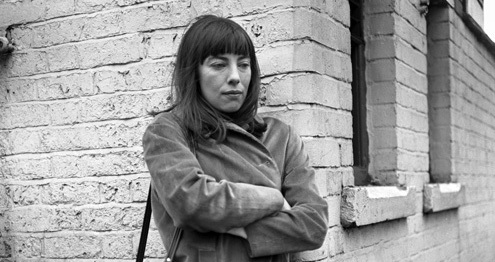
This 1967 portmanteau film from Woodfall both disappoints and surprises in equal measure. Three short films make up an offbeat production that MGM backed only to then shelve on completion. They understandably realised that its box office potential was insignificant and they probably hadn’t a clue as to what it was all about. The White Bus and Red and Blue films are the more radical, whilst The Ride of the Valkyrie is the most traditional. Anderson’s The White Bus was the only film to be shown in cinemas and is the best of the three: yet all of them are failures.
In terms of failing, the worst offender is Peter Brook’s The Ride of the Valkyrie starring Zero Mostel as an opera singer trying to make it on time for his small-part entrance in Wagner’s Die Walkyrie at London’s Royal Opera House. Filmed like a slapstick silent comedy Brooks proves he’s never ever going to effectively pastiche Keaton, Chaplin or even Norman Wisdom! Unfunny sound effects, clunky acting, badly timed gags and a desperate feel of British low-brow farce bring it all crashing down. Zero Mostel (usually a very funny comedian) is here clumsy and self-conscious. His only amusing moment is when, dressed in full costume and yielding a spear, he mistakenly rushes onto a production of a West End drama. And I suppose taking his spear through customs at Heathrow makes you smile because today it would be forbidden and he’d be arrested. But everything else is tedious and quickly forgettable.
The premise of Tony Richardson’s Red and Blue comes across well: a singer’s disappointment with her relationships as she sings of her unhappiness in the present and the past.
Yet despite a convincing and stoical performance from Vanessa Redgrave (who can’t really sing but makes a decent go of it) the film never manages to effectively marry its melancholy with an involving story or convincing atmosphere. It’s partly because the acting of Michael York, William Sylvester and Douglas Fairbanks Jnr, (looking very uncomfortable in the part of Redgrave’s elderly lover) is well below par. There’s some effective use of colour filters and a few Jacques Demyish vocal touches which playfully shake the realism of a film that’s never quite a love letter nor a musical offering. Sadly Richardson’s direction lacks real engagement leaving too much up to Vanessa Redgrave. Red and Blue is deeply flawed with some crude New Wavish gangster scenes but still marginally interesting.
Lindsay Anderson’s The White Bus is the most substantial production. However be warned – if you are not an Anderson enthusiast (as I am) it will make less of an impact, as The White Bus is often a series of sketches and notes for If… and O Lucky Man. The script by Shelagh Delaney is adapted from her own short story. Patricia Healy (A look-alike for Delaney) is a writer / office secretary who travels up by train from London to the North. On the platform she encounters a bowler hatted guy eager to date her. On board the train she’s accompanied by a group of football supporters. On reaching Salford, Manchester she joins some foreign tourists, the Lord Mayor (Arthur Lowe) and his dignitaries on a White Bus tour of the city. Throughout all this she remains remarkable impassive– early on in the office scenes Anderson cuts to a not-full body shot of her having hung herself.
So is The White Bus a post-suicide journey to the writer’s background and roots? Or is she travelling home to the moment when she might take her life? – either way the woman’s cool detachment from events has her rubbing shoulders with the semi-depressed landscape of Manchester and the script’s odd, unfunny satirical tone (maybe the geography and manners of Northern England then was too glum to raise a laugh and therefore that’s the point.) The film’s beautiful and soulful greyness of image, intercut with colour footage, is supplied by the great Czech photographer Miroslav Ondricek who worked with Anderson on If… and O Lucky Man.
I was prepared to regard The White Bus as an intelligent but very unsure film until the writer leaves the bus tour to walk round the streets of her neighbourhood. She stares in the windows of houses and sees an old man being shaved and a young girl (herself?) playing the piano. In an alleyway she disturbs a man insisting that his girl-friend have sex with him. Then in a fish and chip shop she eats a meal: its last customer of the day as chairs are stacked up and a voiceover, of its owners, has them talking about the monotony of work. Recalling the film’s earlier suicidal image then a logical development has been made to make us understand the young woman’s alienated state.
Lindsay Anderson revered the poetic direction of John Ford and Jean Vigo. Although often difficult to precisely pin down, a cinematic poetry is apparent in Anderson’s finest work. As a whole piece The White Bus is not him at his best but a preparation for his more mature work. Yet the autobiographical Delaney scenes have a surreal and haunting power intimating a great deal about environment, class, work, upbringing and its potential to condition and depress.
For these moments alone I’d give The White Bus a three star recommendation, advise you to buy Red, White and Zero and tolerate the other segments. Alan Price©2018
AVAILABLE AT THE BFI FROM EARLY DECEMBER 2018